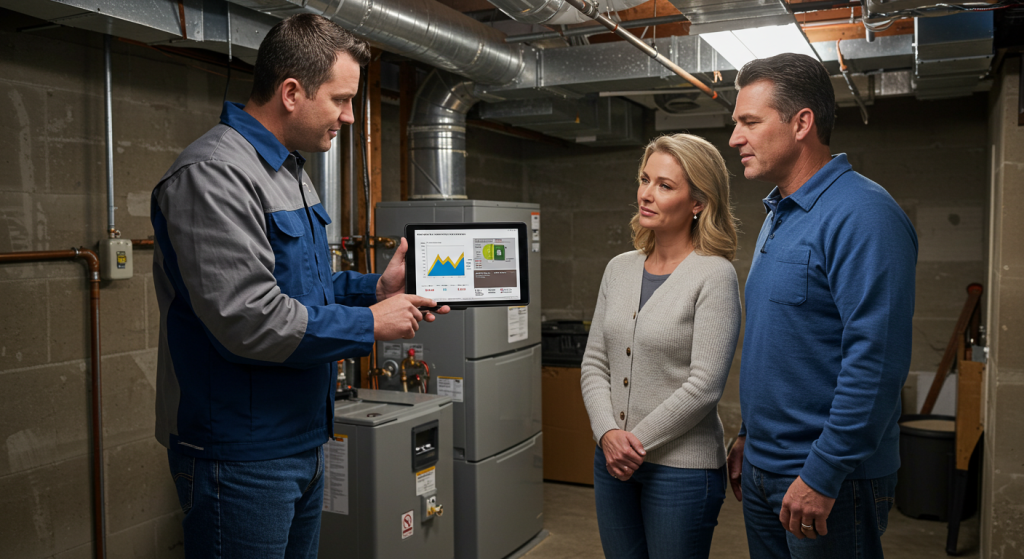Choosing between a gas and electric water heater installation is an important decision that affects your home’s efficiency, cost savings, and overall comfort. At Affordable Heating & Air Conditioning, Inc., we believe in helping homeowners make informed choices by providing honest, professional guidance. Let’s explore the key differences between gas and electric water heaters so you can determine the best fit for your needs.

Key Considerations When Choosing a Water Heater
Several factors influence whether a gas or electric water heater is right for your home:
- Efficiency & Heating Speed
- Gas water heaters heat water quickly, making them ideal for larger households with high hot water demand.
- Electric water heaters take longer to heat water but have higher energy efficiency ratings.
- Installation Complexity
- Gas models require venting and gas line connections, making installation more complex.
- Electric models are easier and quicker to install since they don’t require gas hookups.
- Upfront & Operating Costs
- Gas water heaters generally have higher upfront costs but lower long-term energy costs.
- Electric water heaters are more affordable to install but can lead to higher monthly utility bills.
- Safety & Maintenance
- Gas units require proper ventilation to prevent carbon monoxide buildup and routine gas line inspections.
- Electric units eliminate gas-related risks but require regular electrical maintenance.
Gas Water Heaters: Pros & Cons
Gas water heaters use natural gas or propane to heat water efficiently.
Pros:
- Faster water heating
- Lower long-term operating costs
- Ideal for larger households with high demand
Cons:
- Requires gas line and proper venting
- Higher installation costs
- Carbon monoxide risks if not properly installed
Installation Considerations:
- Costs range from $1,000 to $2,000, depending on the need for additional gas lines or venting.
- Switching from electric to gas can add $260 to $820 in extra costs.
Electric Water Heaters: Pros & Cons
Electric water heaters use heating elements to warm water and are commonly used in areas where electricity is more affordable.
Pros:
- Easier and cheaper to install
- No need for gas lines or venting
- Safer operation with no risk of gas leaks
Cons:
- Slower heating compared to gas models
- Higher monthly energy costs in some areas
Installation Considerations:
- Installation typically costs $700 to $1,000.
- Most installations can be completed in a single day.
Energy Efficiency & Environmental Impact
- Gas Models: Emit greenhouse gases but have improved energy efficiency.
- Electric Models: More eco-friendly, especially when powered by renewable energy.
- Heat Pump Water Heaters: The most energy-efficient option for electric systems.
Making the Right Choice for Your Home
Your decision should be based on your household size, energy costs, and available space:
- Choose Gas if you have a large household and access to natural gas.
- Choose Electric if you want an easier installation, enhanced safety, and potentially lower upfront costs.
Trust the Professionals for Installation
At Affordable Heating & Air Conditioning, Inc., we bring decades of experience and a 5-star service mindset to every water heater installation. Our licensed professionals ensure safe, efficient, and code-compliant installations tailored to your home’s needs.
Pages: 1 2
